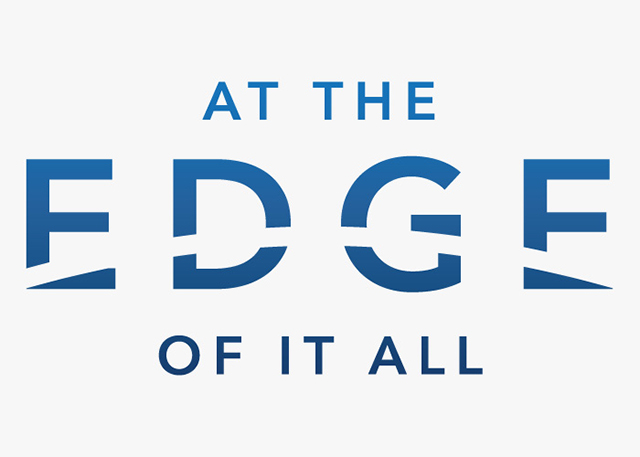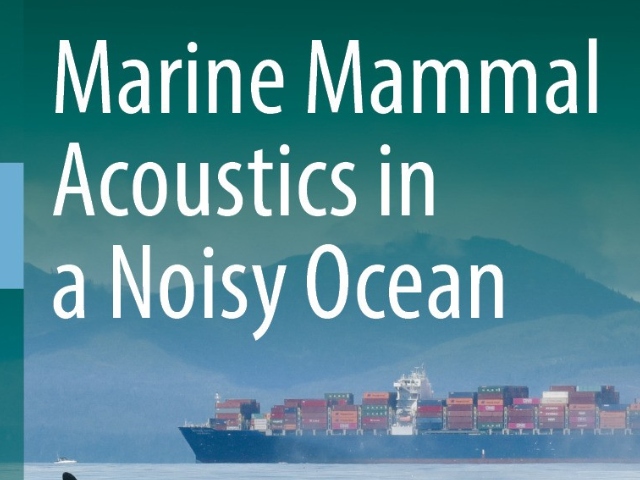USD Teams Chosen for Fowler GSIC: One Digital World, Re:Fresh Smoothies Advance
The University of San Diego has chosen its two entrants who will compete in the Global Finals of the USD-hosted $50,000 Fowler Global Social Innovation Challenge (GSIC) on June 14-15, an event that spotlights entrepreneurial student teams from around the world and their ideas to make a difference.
On Friday, May 3, in the Joan B. Kroc Institute for Peace and Justice Theatre, USD’s Center for Peace and Commerce hosted the USD Social Innovation Showcase to determine this outcome among 11 semifinalists. Following 90-second pitches each team, One Digital World and Re:Fresh Smoothies emerged as the two teams to advance. Furthermore, they received the top amounts from a $10,000 prize money pool with $4,000 and $3,500, respectively, in seed funding.
Casey Myers and Momo Bertrand, two students in the 2019 graduating cohort of the Kroc School’s Master of Arts in Social Innovation, earned the most money with One Digital World, a project that focuses on a digital literacy program for female refugees. The duo received $3,000 in seed funding and also won an on-the-spot $1,000 Audience Choice Award.
Austin Hirsh, a graduating senior mechanical engineering major in the Shiley-Marcos School of Engineering, received funding for his Re:Fresh Smoothies idea as an opportunity to rescue good and even slightly “unattractive” fruits and vegetables from being thrown out by farms and other produce venues, freeze-dry them and ground them down into a powder that, with a little ice and water, can turn into easy-to-make refreshing and healthy smoothies.
Myers has been working on her project since learning in 2015 about the largest refugee crisis in the world since World War II. She had a desire to help others and demonstrated it by quitting her job, flying to Greece to work in a refugee camp with people from some 17 different countries, most notably Syria, Iran, Iraq and Afghanistan, for a full year.
“I went as a general volunteer,” Myers said. “I’ve managed a department with 90 people before and I also know how to clean toilets. Wherever they needed me, I was into it. When I showed up and started meeting people in the camp, I created an English language program called Cookies and Conversation. Through that I built individual relationships in the camp. What they told me they wanted most was to be self-sufficient and to work hard enough to make their own lives and make something of themselves. They asked me about my laptop computer and I figured the best way for them to learn is to teach them how to use the Internet.”
The founder and CEO of One Digital World has been preparing to launch her digital curriculum ever since. She returned to the U.S. enrolled in USD's MASI program and now she's getting ready to launch.
Bertrand has been consulting with Myers for awhile, but now teamed up, they plan to train 400 women refugees a year, starting in Greece's refugee camp, to help women develop their digital skillset and gain certifications to become empowered.
“It’s her project and I know she is really passionate about it,” Bertrand said. “To get to work with her, I want to give my best to it, too. I will use every marketing skill I have to invest in making One Digital World as viable as possible.”
The seed money earned at the May 3 event is helpful, but to Myers and Bertrand, getting the One Digital World concept launched is the highest priority. Myers is already booked to fly to Greece in early June and begin implementing the program shortly after that. It is unclear how they will choose to present their idea at the Fowler GSIC.
“We need to discuss how that will work,” said Myers when asked if she’d be back in San Diego to pitch One Digital World, if Bertrand would do the presentation or maybe a long-distance, online pitch from Myers would happen. “We’re really just excited to get this far right now.”
The preliminary pitches will be given June 14 and once finalists emerge, they’ll present at the June 15 Fowler GSIC finale. Both presentation days are scheduled for the Kroc IPJ Theatre, but only the June 15 event is open to the public.
Hirsh, meanwhile, is excited to present at the Fowler GISC, but he, too, is focused on multiple things. The Gig Harbor, Wash., native will graduate in late May, he'll work on the Re:Fresh Smoothies business plan, pitch it in the GSIC and then only days later, begin a one-year master’s program in engineering entrepreneurship at the University of Washington.
“We have to develop a thesis and launch a venture when it’s done,” he said of the master’s degree program. “But it is going to be great to walk right in after having this experience with this idea, develop it throughout the year and launch it at the end of the master’s program.”
Hirsh is a serial student entrepreneur. He applied to the Social Innovation Challenge freshman year and was a semifinalist with an idea for a modular garden enabling communities could grow their own food. He also applied to USD’s Venture Vetting (V2) Pitch Competition and was a 2018 finalist with Picket, an innovative lawn mower with an oscillating blade design and energy-efficient battery to make it eco-friendlier and more user-friendly than traditional lawnmowers. The project was rewarded with $8,000 last year.
Re:Fresh Smoothies gives Hirsh is a new venture for which to make an impact. ‘I love doing this, I love taking an idea and making it into a real product,” he said. “And to take an issue that I had every day, in this case the inconvenience of making smoothies, and find and develop a social and environmental solution is great.”
Nine USD Semifinalists Move Forward with Their ideas
Speaking of launching, just because the other nine USD semifinalists didn’t advance, doesn’t mean they’ll stop now. Two other semifinalists, Athletic Initiative and Kite, received $1,500 and $1,000 respectively in seed funding.
Athlete Initiative, led by Amy Kame, a former USD women’s basketball standout, a ’14 undergraduate alumna and soon to be a MA in Leadership Studies graduate in the School of Leadership and Education Sciences, and Business Analytics Master’s student Robbie Beyer, are addressing the mishandling of sexual assault cases at the university level, especially those involving student-athletes. They’re developing specially tailored programs for athletic departments to help educate their athletes.
Kite, an idea brought to light by two Kroc School MASI students Julia Stewart and Nisreen Al Sabie, seeks to create more empathy for justice-involved individuals, including the launch of a magazine that empowers people inside and outside of prison to see each other differently.
The other seven USD semifinalists (USD student entrepreneurs in parenthesis) were: Brothers Reborn (Ian Western), LifeBox (Charles Bullard, Mikhail Mabourakh, Kyle Duffy, Matteo Hernandez), Lyme Light Monologues (Patricia Cosulich and Erica Wright), Pyggy (Ana Dominguez), QuakeSafe (Maddie Nelson, Trey Stead, Allie Campos and Rolando Mendivil), Stride (Grace O’Brien, Tyler Schiller and Camille Morales) and Taiya (Erickson Goff and Chadmond Wu).
The Center for Peace and Commerce provided all 11 semifinalists with in-kind prizes from sponsors such as Conscious Capitalism San Diego, Torrey Project, Greenhouse: An Initiative of Flourish San Diego, Mission Edge, Procopio, Because, Experts Together, StartUp San Diego. All 11 teams are eligible to receive one-on-one mentoring and support from USD’s The Brink Small Business Development Center (SBDC).
Student teams from some 25 universities around the world will be determined and announced soon.
— Ryan T. Blystone
Contact:
USD News Center
news@sandiego.edu
(619) 260-4681




